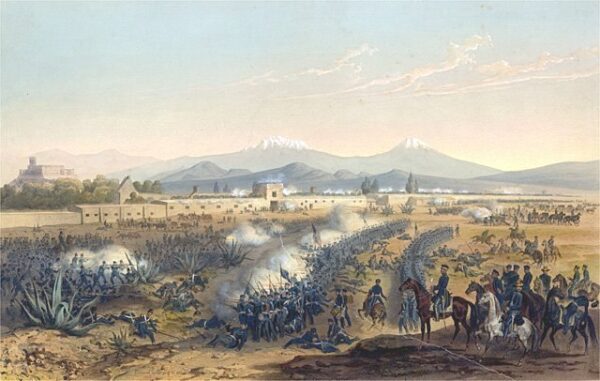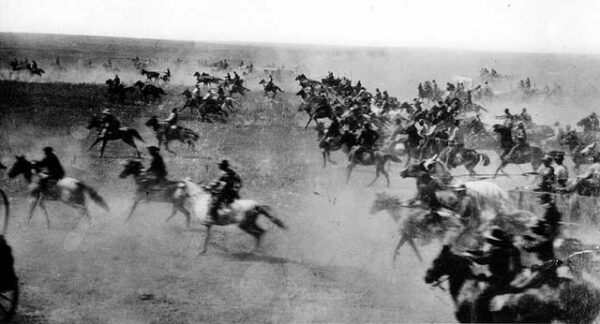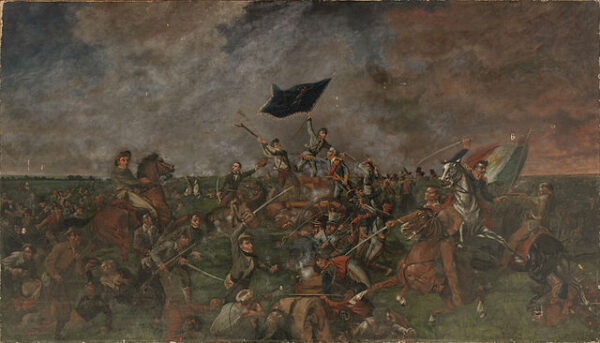The Thornton Affair, also known as the Thornton Skirmish, served as one of the most consequential fights in American history. On April 25, 1846, Americans and Mexicans found themselves in a standoff near the Rio Grande, just north of present-day Brownsville, Texas. The incident escalated tensions between the United States and Mexico, ultimately leading to war.
On the morning of April 25, 1846, a patrol of around 80 U.S. Dragoons, led by Captain Seth B. Thornton, was scouting the area near the Rio Grande when they encountered a larger force of Mexican troops under the command of Captain Anastasio Torrejon. The Mexican troops demanded that the Americans retreat to the east bank of the river, as they believed the area belonged to Mexico.
Captain Thornton, outnumbered and seeking to avoid conflict, attempted to withdraw his men. However, the situation quickly escalated when shots were fired, allegedly initiated by the Mexican forces. In the ensuing skirmish, the Americans suffered casualties, with several soldiers killed and others captured, including Captain Thornton himself, who was wounded and taken prisoner.
The Thornton Affair provoked outrage in the United States and was used by President James K. Polk as a reason to request a declaration of war against Mexico. Polk argued that the attack on U.S. troops had occurred on “American soil,” thereby justifying military action against Mexico. On May 13, 1846, the U.S. Congress declared war on Mexico, officially commencing the Mexican-American War.
The war that followed lasted for nearly two years and resulted in significant territorial gains for the United States, including the annexation of Texas, California, and other territories in the Southwest. The Treaty of Guadalupe Hidalgo, signed on February 2, 1848, formally ended the war and established the Rio Grande as the southern border of Texas, confirming the U.S. claim to the disputed territory.
In the United States, the Thornton Affair was portrayed as an unprovoked attack on American troops, fueling nationalist sentiment and support for the war effort. However, in Mexico, the incident was viewed as a legitimate defense of sovereign territory against perceived aggression by the United States. The differing interpretations of the Thornton Affair highlight the divergent perspectives on the causes and consequences of the Mexican-American War, including from an unknown freshman congressman from Illinois, Abraham Lincoln, who used his time in Congress to issue the “spot resolutions” in which he demanded an investigation into the very spot Thornton and his troops stood during the skirmish.






